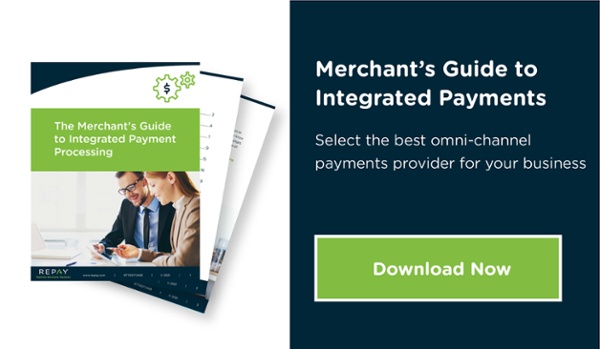The payment industry is constantly changing, evolving, and upgrading. In the past few years, the financial industry has seen the rise of FinTech, eCommerce, cashless payments, and much more. Business owners accepting credit cards rely on experts in the field to provide the best in payment processing services, such as all-in-one payment providers, as well as omni-channel and integrated payment solutions. In this blog, we will detail exactly what are third party payment processors (also known as merchant brokers) and how to ensure that you select the right payments provider for your business needs to reduce your risk.
What is a merchant account?
Third party payment processors differ from payments providers by not providing a dedicated merchant account. We explained multiple key payment terms in previous blogs, the “Who’s Who” of payment processing, as well as key terminology to know, but put simply: a merchant account is a type of bank account that gives a business the ability to accept payments.
A merchant account is established under an agreement between an acceptor and a merchant acquiring bank for the settlement of payment card transactions. The typical way most businesses acquire their merchant is by working with a merchant services provider through their underwriting process.
What is a payment broker / third party payment processor?
One major weakness of using third party payment processors or brokers is that your business will not have a dedicated merchant account. This is the main difference between third party payment processing and using a verified payments provider/ISO/MSP: their relationship with the processing bank. A third party payment processing company will most likely not be able to advocate on your behalf to the banks, explain important parts of the payment process to you, and may not be aware of the changes in the finance and FinTech industries.
Signing up with a cost-effective, third party payment processor is a cheap way to begin to accept credit and debit payments for your business quickly. However, working with reliable, knowledgeable, and vertically-integrated payments providers can oftentimes yield a better payment service for your business needs.
Third party payment processors rarely have comprehensive, robust, or flexible solutions. Payments providers that are all-in-one, omni-channel, seamlessly integrated, and with an in-house development team are better suited for businesses experiencing growth, processing a large volume of B2B, B2G, or high ticket transactions.
Your payment solution can impact:
- Your cash flow
- Your workflow efficiency
- Your bottom line
- Your customer satisfaction
Third party payment processor disadvantages & risks
Merchant service providers offer a range of solutions for large and small businesses. However, working with a third party payment processor can cause you to miss out on product features and open your businesses up to significant risks. Let's review some of these key areas of concern...
Security: Fraud, misuse, and lack of security are the most common risks associated with third-party payment processors. As the Federal Deposit Insurance Corporation (FDIC) states,
“Deposit relationships with payment processors can expose financial institutions to risks not present in typical commercial customer relationships, including greater strategic, credit, compliance, transaction, legal, and reputation risk.”
Protecting cardholders data isn't just good PR. Failing to maintain PCI Compliance can have steep costs for your business. Tokenization, encryption, and the latest advancements in data security should be major features of your payment gateway and your payment solution as a whole.
Compliance risk may even be a problem where security is not. A quality payment processing solution will be able to guide you through the process of compliance, send important reminders, and even provide free customer support as you work through relevant PCI-DSS guidelines.
A third party payment processor may not follow governing laws, rules, or regulations required for your region, the region you conduct business in, or the region(s) of your customer.
Reputation risk can have major impacts on your business, sales, and partnerships. Customer dissatisfaction with a third party payment processor can increase shopping cart abandonment, decrease customer loyalty, repeat purchases, and lead to negative reviews and negative public perception.
Operational risk stems from poor implementation that lacks consistency with the strategic goals for the business. High transaction fees or hours of downtime without receiving payment can have a major impact on all aspects of a business and for the organization long term. Without adequate and timely card payments, organizations can be prevented from adopting needed investment into cutting edge technology or enabling remote work capabilities. Conversely, partnering with the right payment solutions can yield recurring revenue for long term solvency.
Credit risk occurs when the third-party broker is unvetted, unsuitable, and unable to meet the terms of contract with either the merchant or the acquiring bank. The system of credit is based on relationships of trust between the cardholders, payment processors
Efficiency risk: lack of customer service, automation, and poor future planning can all impact your productivity, efficiency, and ultimately your bottom line.
Opportunity cost: the greatest risk; however, is the opportunity cost of the great service, savings, and functionality that your business needs in order to remain competitive in a global market.
An all-in-one payment solution provider will be your “one stop shop” for everything related to payments. This simplifies your billing, eliminates duplicate fees, and ensures that your payments provider is truly an expert in all aspects of the payments industry and process.
Omni-channel integrated payment processing can be crucial to streamline workflows, save money, and remain relevant to modern customers. Now more than ever, businesses need to accept payments across multiple channels to meet consumer demand.
Seamlessly integrated solutions are essential for consumer data to be easily transferred between the different platforms and programs that companies use to organize data and facilitate workflows. Some payment processing solutions will only be partially-integrated. Seamlessly integrated solutions connect each integration together (shopping cart, ERP, POS, etc.), allowing for back and forth communication between platforms with a shared token for easy reconciliation. By using shared tokens, this creates a seamless experience for customer and business users.
Software developers are necessary to build the integrations between the payment gateway and the accounting software, eCommerce, and/or point-of-sale (POS) software. Your payments provider should have an integrations team on their staff, accessible developers, and open API. Third party integrations are not maintained in house and won’t provide you with the same benefits.
Level 3 B2B payment processing helps businesses garner lower processing rates and reduce costs for Business-to-business (B2B) and Business-to-government (B2G) transactions. Integrated and automated Level 3 processing pulls the necessary data points for you with no extra man hours or manual data digging. Omni-channel processing with Level 3 directs all needed information and data to maximize savings. This helps to improve your cash flow, and ensure faster reconciliation.
eCommerce shopping cart integrations or online payment portals are essential for business - now more than ever before. It is important that your payment solution can integrate into multiple shopping carts and that you consider online payment portal functionality when evaluating which payment solution to process with. The rights provider will be able to educate you on the best eCommerce solutions for your business, provide an eCommerce payment processor FAQ, or other educational content to help your business stay ahead of the competition.
Your payment processor needs to be available when you need them, prepared to answer your questions, and able to anticipate your needs as a business. 24/7 live support should be the standard for all payment solutions, as well as access to key integration experts to supply more than cursory assistance. Downtime on your payments translates to lost sales, lost revenue, and lost customers
Questions to ask before working with a payments provider:
- Am I missing out on any of the features, service, and functionality listed above?
- Does the offerings of the provider meet my needs as a business?
- Will I have a merchant account?
- Is there an underwriting process?
- Will cardholder data be stored locally on my servers or safely in the cloud?
- Does the provider have its own gateway?
- Does your processor have a seamless integration with your current accounting system, ERP, or eCommerce shopping cart?
- Does the provider have in house customer service which support the gateway, integration and merchant account in general?
The most effective way to prevent any risks is to use only reputable and trustworthy payment providers.
REPAY has a team of payments experts standing by to educate you on integrated payment processing. REPAY offers omni-channel B2C and B2B integrated payment solutions and is a gateway and processor that is trusted by thousands of merchants daily to process payments. With payment integrations to many leading ERP and eCommerce platforms like Acumatica, AccountMate, Adagio, Sage, SAP Business One, Magento, WooCommerce, BigCommerce, Miva, and more, REPAY is leading the way in the payments industry by providing omni-channel integrated payment solutions and 24/7 live customer support.
There is a lot to know when researching the best payments solution for your business. This free credit card processing buyer's guide can help you stay informed on the basics, features, and trends to secure the best possible payments solutions for your business.


